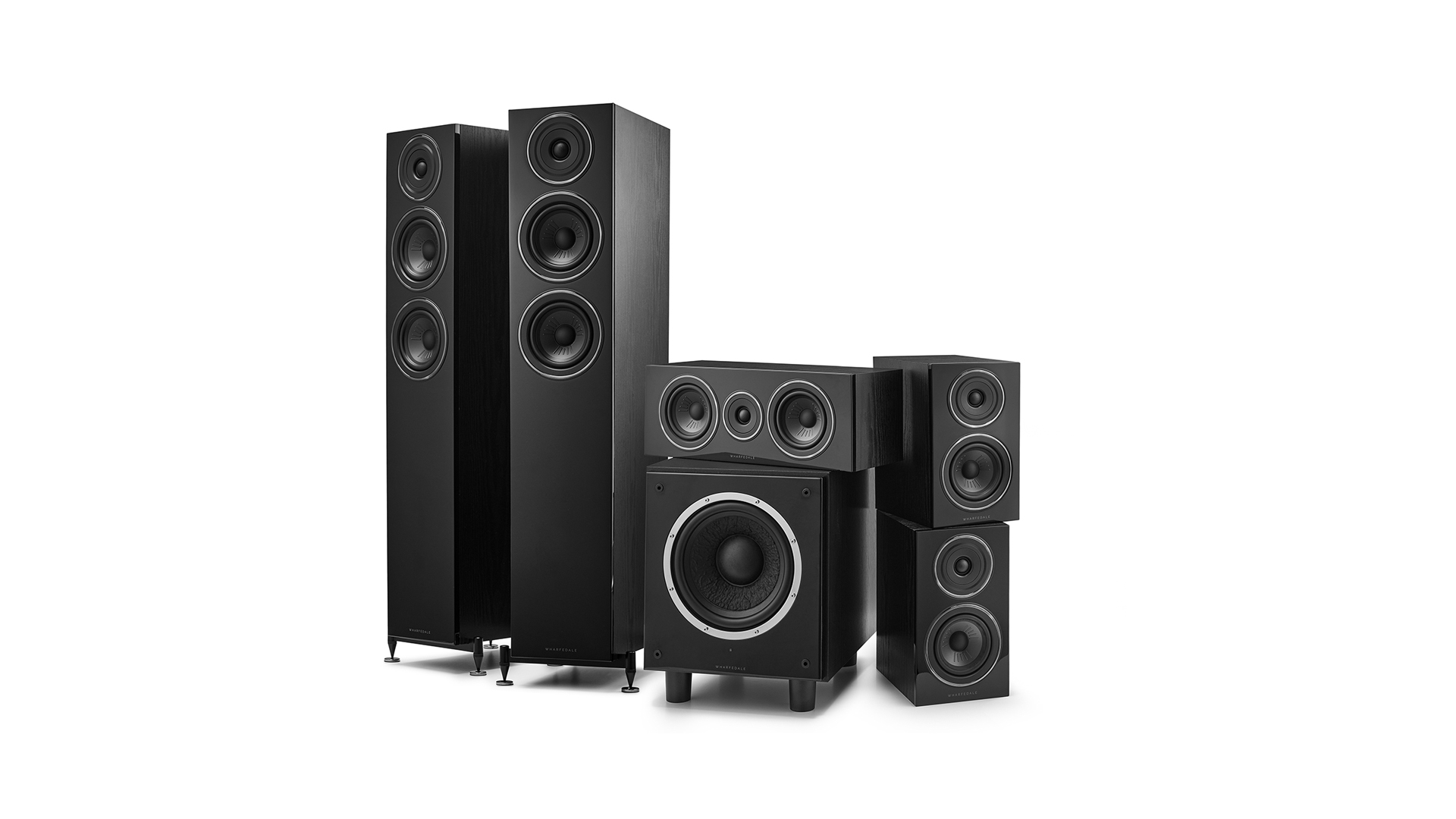
When it comes to investments, whether you’re looking to buy shares in Spotify and Netflix or purchase a quality home cinema surround system, it's always worth bearing in mind the disclaimer that ‘past performance cannot be used to reliably predict future performance’.
Just because a speaker range has a successful pedigree doesn’t guarantee that its latest iteration will be a sensation. And then there’s the touchy subject of group dynamics. Like attending a family gathering after a few years of relative isolation, a range of speakers may share the same DNA, but that doesn’t always make for a harmonious set-up. While tweeters, materials and design are typically cascaded across each model in a series, every speaker isn’t always a top performer or indeed works equally well in combination with its siblings.
Wharfedale’s Diamond range has a legacy beginning back in 1982, but for its 14th generation, the Diamond 12 series has thrown off the shackles of heritage with a make-over courtesy of designer Karl Heinz Fink (whose CV includes Q Acoustics among many others), who reviewed every aspect of the cabinet and driver construction. The resulting range consists of three sizes of standmount speakers (12.0, 12.1, 12.2), two options of floorstanders (12.3 and 12.4) and a single centre speaker (12.C).
In previous tests of pairs of the 12.1s, 12.3s and budget surround system, the 12.1 HCP, we’ve been impressed by the surprising sophistication that the Diamonds can deliver at a reasonable price. But can the more expensive 12.3 HCP continue Wharfedale's successful run of achievements?
Price
In this review, we’re testing a system comprising the 12.3 floorstanders for fronts (£499 / $798 / AU$1699) supported by a pair of mid-sized 12.1 bookshelf speakers as surrounds (priced at £249 / $399 / AU$699 per pair), joined by the 12.C in the middle (£229 / $229 / AU$575).
For bass, we use Wharfedale’s SW-10 powered subwoofer (£399 / $599 / AU$1149), the cheapest and smallest of its three strong SW range. In the UK, this system is called the Diamond 12.3 HCP (Home Cinema Pack) and can be picked up for £1299 – a saving of £77 over the cost of buying everything separately.
It’s similarly priced and sized to the What Hi-Fi? award-winning Q Acoustics 3050i, which launched at £1349 but can occasionally be found discounted to below £1000. Both the Diamond 12.3 HCP and the Q Acoustics 3050i share a similar ethos of bringing the scale, power and immersion of a grown-up surround system to a practical footprint and price category.
Build
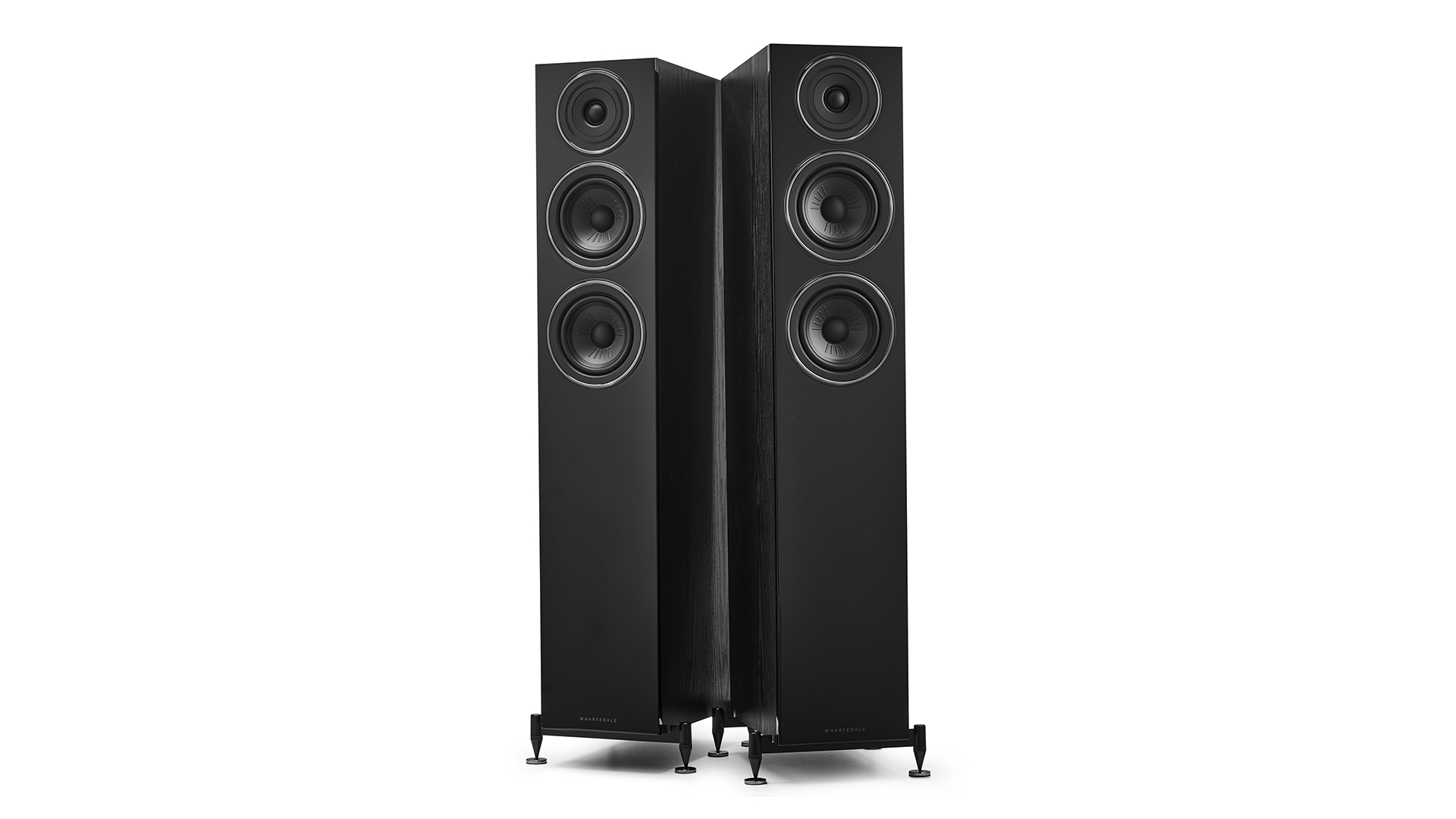
Available in four finishes: black, walnut, white and light oak, with a lacquered black or white baffle housing the drive units, the Diamond 12’s redesign began with the cabinet's construction. Inside, the engineers created the panelling from varying thicknesses of MDF that, together with spot bracing, help better control unwanted resonances. The result is a sturdy but understated build with sleek-looking cabinets that aren’t visually overbearing. At under 98cm tall, the 12.3s are a manageable size for floorstanders, with an elegant, clean, but classic design that helps them easily blend into a space.
At the rear, like every other model in the range, the 12.3s have two sets of terminals for bi-wiring, with metal straps for non-bi-wired set-ups.
With a 2.5-way, rear-ported design, the 12.3s employ two 13cm drivers, one of which handles the midrange downwards, while the other takes care of just the lows. Both drivers use a cone material called Klarity, a new polypropylene composite with mica added to improve its rigidity. These Klarity cones are used throughout the range, driven by a magnet with an aluminium compensation ring to minimise the effects of fluctuations in inductance that can occur as the voice coil moves.
Meanwhile, the 25mm coated woven polyester soft dome tweeters in the 12.3s are also carried across the entire package. With a high-gloss coating, the almost wholly exposed domes are built to deliver wide, smooth dispersion and solid dynamic detail.
In comparison, the diminutive 12.1 standmounters feature a single Klarity 13cm mid/bass while the 12.C centre doubles that.
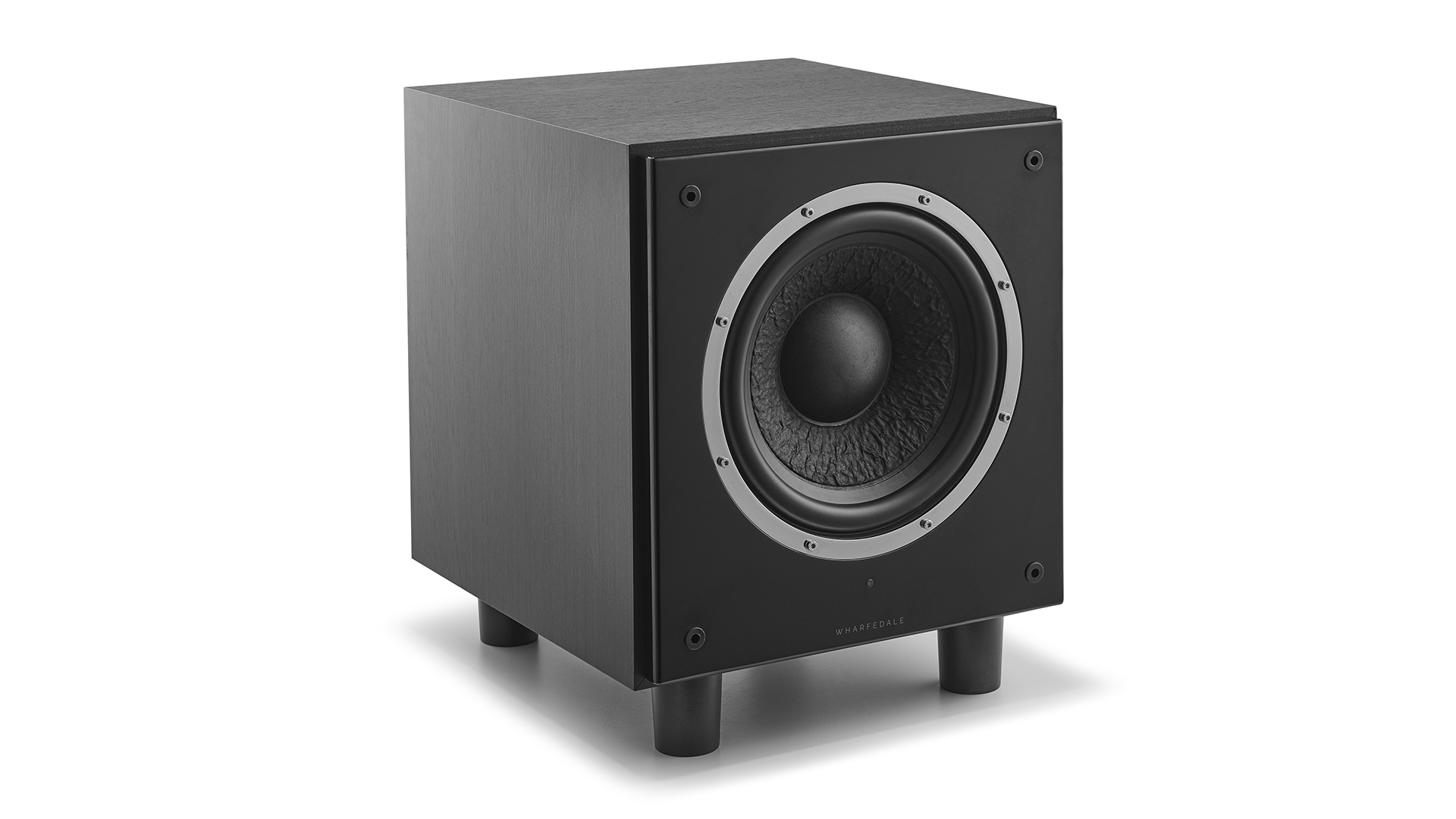
12.3:
Type 2.5-way, bass reflex
Max power 150W
Sensitivity 89dB
Impedance 8 ohms
Frequency response 45Hz - 20kHz
Dimensions (hwd) 98 x 18 x 32cm
Weight 19.5kg (each)
12.1:
Type 2-way, bass reflex
Max power 100W
Sensitivity 88dB
Impedance 8 ohms
Frequency response 65Hz to 20kHz
Dimensions (hwd) 31 x 18 x 28cm
Weight 6.8kg (each)
12.C:
Type 2-way, bass reflex
Max power 120W
Sensitivity 90dB
Impedance 8 ohms
Frequency response 90Hz to 20kHz
Dimensions (hwd) 18 x 48 x 21 cm
Weight 8.5kg (each)
SW-10:
Active Dynamic Drive IB subwoofer
Amplifier output 200W
Sensitivity 110dB
Line input impedance 10 kilo Ohms
LFE input impedance 5 kOhms
Frequency response 40Hz to 120Hz
Dimensions (hwd) 42 x 34 x 38 cm
Weight 16.5kg (each)
The SW-10 subwoofer is available in matching wood finishes with the same polished baffle housing a single front-facing 25cm long-throw driver. Hidden at the rear are physical controls for level, phase and auto-sense (the sub comes out of standby when a signal is received), as well as two RCA inputs. At 42cm high, it is by no means tiny but, unusually for a sub, it is so well integrated both sonically and physically into the rest of the system, delivering a tuneful performance that belies its size, that it's one of the many high points of the system.
Each of the full-range speakers has a claimed nominal 8 ohm impedance, and with a minimum impedance of 5 ohms for the floor standers and 4 ohms for the surrounds, any price-compatible amp should have no problems driving this system. For testing, we use our 2021 Award-winning Denon AVC-X6700H amplifier, priced at £2299 / $2499 / AU$6190), with the Pioneer UDP-LX500 UHD 4K Blu-ray player as our source.
The broad dispersion pattern of the system and its practical size make it surprisingly easy to arrange the speakers. Keeping the 12.3s angled slightly toward the listening position, the speakers are easy to position to achieve even presentation across the front. On the whole, the Diamonds are forgiving when it comes to placement. We decide to leave the port bungs out but keep the speakers around 70cm away from the walls of our listening room.
Sound
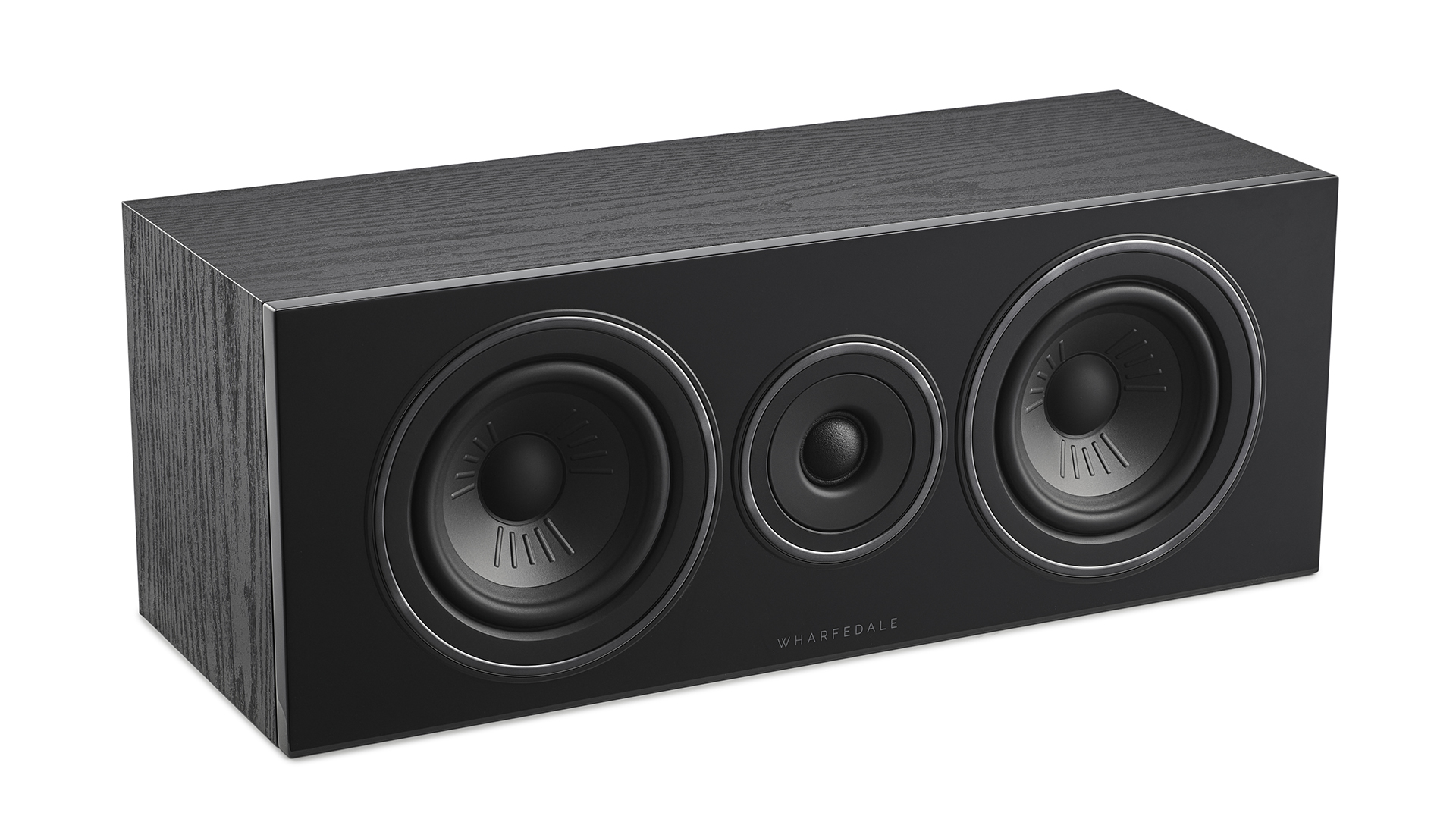
Starting things off with Gravity, the floorstanders immediately make their presence and capability known in the powerfully dynamic opening orchestral sting. As the subsequent radio communications bounce seamlessly around the system, gently building in volume, there’s a fantastic consistency across the soundstage as well as plenty of dialogue clarity, which is particularly impressive given the relatively petite size of the centre channel. When the film's sonic point of view switches to inside Sandra Bullock's helmet, the shift to the rears is seamless, with no undue colouration in the voice.
The low sonic tones of the soundscape and vibrational rumbles of the astronaut's movements have a tendency on lesser systems to be either over prominent or sloppily monotone, but the SW-10 combines a firm grasp with swift agility, resulting in a measured performance that has plenty of tonal variation and blends effortlessly with the low end of the 12.3s.
Switching to Queen's Live Aid performance in Bohemian Rhapsody, we’re pleased to find that the Diamond 12.3 HCP delivers a performance that’s both enjoyably musical and dramatically detailed. The snappiness of the sub lends depth to concise drum fills and bass licks while small touches, from the lively slap reverb of Wembley Stadium to the giggle of a security guard picked out amongst the melee of the crowd, are delivered with playful nuance.
The 12.3s add weight and gravitas to the stage sound that nicely balances out the ambience of the rears, while the 12.1s do an excellent job presenting a textured tapestry of crowd noise that surges and swells, enhancing the atmospheric excitement.
Occasionally, as in the chase through Matera in No Time To Die, achieving a dynamic balance between the rears and fronts can result in certain, more insistent sounds having a slight over prominence in the 12.1s, though this only happens very occasionally.
In comparison, the Q Acoustics 3050i delivers a different but equally competent interpretation with a touch of additional fluidity and spaciousness; but overall, we find that the Diamonds have a slightly more precise and tactile performance and are particularly well suited for a system used as much for music as movies.
Streaming the ethereal Soothing by Laura Marling, there’s an abundance of attack on the springy pizzicato bass strings balanced by the lively sparkling treble of the acoustic guitar while the plaintive vocal maintains an understated but expressive presence.
With the busier Change by Blind Melon, where increasingly frenzied layers of mandolin, harmonica, vocal and guitars all jostle for space, the system retains a solid composure, with clear separation between instruments and just a hint of smoothing of any ragged fringes keeping everything sounding coherent while still retaining the ironic buoyancy that makes the track so enduring.
Verdict
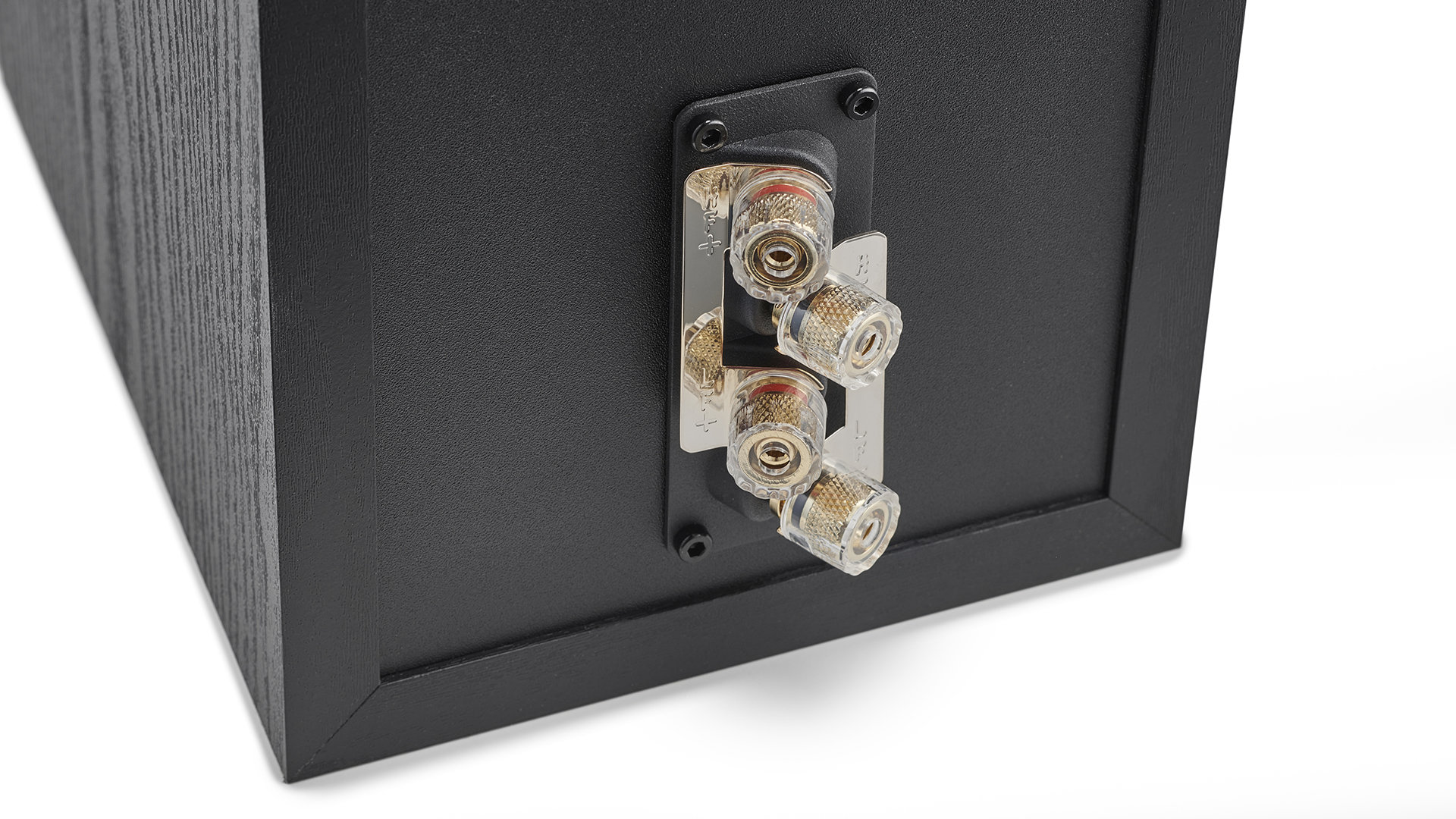
There’s lots to admire about the classy and composed Diamond 12.3 HCP. With sophisticated, musical floorstanders, a capable, clear centre channel, a taut sub and excellent integration, this is a detailed and dynamically responsive system that delivers beyond its price point.
Review published: 2022. Review updated: November 2024.
SCORES
- Sound 5
- Compatibility 5
- Build 5
MORE:
Also consider Q Acoustics 3050i 5.1 Cinema Pack
Read our review of the Dali Oberon 5 5.1 Speaker Package
See our thoughts on the Triangle Borea BR08 5.1 Speaker Package







